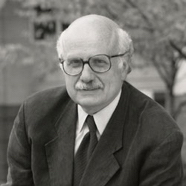Thursday’s Jan. 6 Hearing And What Comes Next
Fred Wertheimer’s Weekly Note | October 13, 2022
 Thursday, October 13 marks the last scheduled public meeting of the House January 6th Committee that is examining former President Trump’s attempted coup, the violent, insurrectionist attack on the Capitol he incited, and the events surrounding his efforts to overturn the 2020 election.
Thursday, October 13 marks the last scheduled public meeting of the House January 6th Committee that is examining former President Trump’s attempted coup, the violent, insurrectionist attack on the Capitol he incited, and the events surrounding his efforts to overturn the 2020 election.
The Committee is expected to announce its findings and recommendations after the November elections.
The Committee, led by Chairman Bennie Thompson (D-MS) and Vice Chair Liz Cheney (R-WY), has done an outstanding job in revealing explosive new evidence and skillfully telling the story about the actions of Trump and his collaborators during the post-presidential election period.
This included the Committee exploring the potential crimes that may have been committed in the coup attempt and the January 6 attack. These potential crimes are captured in a series of Criminal Evidence Tracker reports published by Just Security and prepared by Democracy 21, Amb. Norman Eisen (ret.), and CREW.
The Committee hearings revealed, for example, that when Trump incited his followers to march to Capitol Hill he knew he was sending an armed mob to Congress to prevent the counting of the electoral votes that would declare Biden the next President.
The hearings revealed that Trump endangered the safety of Vice President Pence and his family on January 6 by tweeting criticism of Pence, which unleashed the mob to go after Pence, chanting “hang Mike Pence.” They also revealed that Trump watched the riots unfold on television for hours without lifting a finger to protect the Vice President, his family, or Members of Congress, despite pleas from Trump family members, White House advisors, and Republican congressional leaders.
The hearings revealed Trump’s devious scheme to name a Justice Department minion as the new Attorney General who then planned to send letters to Trump-friendly state legislatures alleging widespread fraud in their states – without a shred of evidence.
The proposed letters would urge these friendly state legislatures to exploit the “failed choice” loophole in antiquated 19th-century laws and substitute their own Trump presidential electors for the Biden electors that had been chosen by the voters on Election Day.
Trump’s own top Justice Department officials killed this scheme to steal the presidency.
But an attempt to overturn a presidential election could happen again, as early as 2024, unless the dangerous “failed choice” loophole is closed.
The Electoral Count Reform Act (ECRA) currently pending in the Senate would close this loophole. Reform legislation, similar to the ECRA, passed the House last month and with 16 Senate Republicans as co-sponsors, the ECRA is expected to be voted on by the Senate in the upcoming lame duck session.
Some argue that even with the loophole closed, if the Supreme Court adopts the so-called “independent state legislature theory” in the pending Moore v. Harper case, this will override the ECRA and empower a state legislature to reject the choice of voters for President in their state and appoint their own presidential electors. That argument is wrong.
This excellent article by Protect Democracy explains the issue.
A major question remaining for the Jan. 6th Committee is whether they will make a referral to the Justice Department for the Department to investigate potential criminal violations by former President Trump based on the public record developed by the Committee.
Regardless of whether they do, however, the DOJ is apparently investigating possible criminal conduct by Trump in both the circumstances surrounding his coup attempt and his improper holding of classified documents at Mar-a-Lago, including his potential obstruction of justice in the matter.
In the end, Attorney General Merrick Garland is ultimately responsible for deciding whether the Justice Department will move forward to indict and prosecute Trump for criminal violations of federal law.
A new analysis in The Atlantic suggests that it is inevitable that the careful and cautious Garland will “make the most monumental decision an attorney general can make” and indict Trump.
________________________
Fred’s Weekly Note appears each Thursday in Wertheimer’s Political Report, a Democracy 21 newsletter. Read this week’s newsletter here. And, subscribe for free here and receive your copy each week via email.